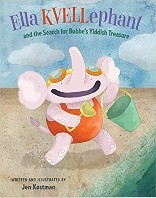Jewish firsts in early American history have always held a special place in Jewish American identity. Before the second wave of immigration that brought over two million new Jewish immigrants to the United States at the turn of the twentieth century, there were smaller numbers of Jews seeking to find their place within American democracy without the support of an established community. When twenty-three Jewish refugees from Recife, Brazil, arrived in New Amsterdam in 1654, their future in the colony seemed unsure. Written in an engaging diary format and enhanced with primary documents, Daniela Weil’s new novel imagines what this experience was like for young Asser Levy who, along with his fellow community members, is forced to leave his home when Portugal conquers the Dutch colony of northern Brazil and imposed antisemitc policies. Middle-grade readers of the book will gain historical information and a new perspective on the early odyssey of Jews to New York City.
Historians have not proven that Levy was part of the Recife group; he may have arrived directly from Europe. Weil acknowledges this controversy in her detailed “Epilogue,” but she has created a believable historical narrative out of the facts which are available. Asser begins his diary as the young son of a kosher butcher, whose stable life in the welcoming environment of Dutch Brazil has been suddenly upended by the Portuguese attack. The Netherlands was a famously tolerant and multicultural society which had welcomed Jews, both Sephardic and, like Levy, Ashkenazic, to their nation and its colonies. Weil describes the chaotic circumstances of the Levys’ flight from Brazil, including an attack by pirates on their ship and their temporary shelter in Jamaica before arriving in New Amsterdam. Levy records his thoughts in an understated tone, consistent with the formal style in which authors usually wrote in diaries at the time. As the narrative develops, Levy reflects more on his emotions, including fear, anger, and his developing romantic feelings for Miriam Israel, the young woman who would one day become his wife.
Weil emphasizes the solidarity of the small group of immigrants, necessarily simplifying some of the history; as a novel for young readers, her choices are appropriate for making the story accessible. She succeeds in evoking the atmosphere of insecurity and tension, as Levy and his fellow Jews confront the deep prejudice of Peter Stuyvesant, New Amsterdam’s director-general. In striking contrast to the more enlightened attitudes of many Dutch towards their Jewish neighbors, Stuyvesant contrives to marginalize them at every opportunity. As Asser feels called upon to assert the rights of his people, he argues on the basis of what they legally deserve, but also on the contributions which they are eager to offer their new home. This embrace of both rights and responsibilities has been central to the history of Jews in America. Weil’s book captures the essential quality of the Jewish American experience through the lens of one of its earliest pioneers.
The Diary of Asser Levy is highly recommended, and the extensive “Epilogue” includes further background history, photographs, a timeline, a glossary, and recommended additional sources of information.
Emily Schneider writes about literature, feminism, and culture for Tablet, The Forward, The Horn Book, and other publications, and writes about children’s books on her blog. She has a Ph.D. in Romance Languages and Literatures.




